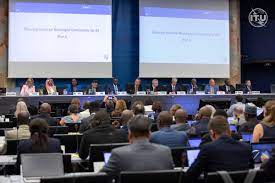In an era dominated by digital connectivity and technological advancements, the concept of internet governance has become increasingly pertinent. The internet, once a mere tool for communication, has evolved into a global network that influences every aspect of our lives—from social interactions to economic transactions and beyond. However, with its expansive reach and transformative power, the internet also brings forth a multitude of challenges and complexities that necessitate careful consideration and internet governance.
Understanding Internet Governance
Internet governance refers to the mechanisms, processes, and rules that dictate how the internet functions and evolves. Unlike traditional governance structures that are typically centralized and hierarchical, internet governance is characterized by its decentralized nature and involves a diverse array of stakeholders. These stakeholders include governments, private sector entities, technical experts, civil society organizations, and individual users—all of whom play pivotal roles in shaping policies, standards, and practices that govern the internet.
Key Issues and Challenges
- Cybersecurity: With the proliferation of cyber threats such as hacking, data breaches, and ransomware attacks, cybersecurity remains a paramount concern in internet governance. Effective measures must be implemented to safeguard digital infrastructures, protect user privacy, and mitigate cyber risks.
- Digital Rights and Freedoms: Balancing the preservation of online freedoms—such as freedom of expression and access to information—with the need for regulation to combat issues like misinformation, hate speech, and online harassment poses a significant challenge. Upholding fundamental rights in the digital realm requires nuanced policies and international cooperation.
- Digital Inclusion: Bridging the digital divide and ensuring equitable access to the internet and digital technologies is essential for promoting socioeconomic development and reducing disparities. Efforts to expand connectivity and enhance digital literacy are crucial components of inclusive internet governance.
- Content Regulation: Determining appropriate frameworks for regulating online content while respecting cultural diversity and societal norms remains a contentious issue. Striking a balance between content moderation and freedom of speech is a delicate endeavor that demands transparent and accountable governance mechanisms.
The Multistakeholder Approach
Central to effective internet governance is the multistakeholder approach, which emphasizes the involvement of diverse stakeholders in decision-making processes. This inclusive model fosters collaboration, transparency, and accountability, ensuring that policies and standards are informed by a broad spectrum of perspectives and expertise.
Future Directions and Innovations
Looking ahead, the future of internet governance will be shaped by ongoing technological advancements, geopolitical dynamics, and societal expectations. Key areas for future focus include:
- Enhanced Cybersecurity Measures: Continued investment in cybersecurity infrastructure and capabilities to combat evolving cyber threats.
- Ethical Considerations in Technology Development: Promoting ethical standards in the design and deployment of emerging technologies, such as artificial intelligence and blockchain.
- Global Cooperation and Diplomacy: Strengthening international cooperation frameworks to address cross-border challenges and promote global internet governance principles.
Conclusion
In conclusion, internet governance is a multifaceted and evolving field that requires continuous dialogue, collaboration, and adaptation to address the complexities of the digital age. By fostering inclusive and transparent governance frameworks, we can harness the transformative potential of the internet while safeguarding fundamental rights and promoting sustainable development. Ultimately, effective internet governance is not merely a regulatory endeavor but a shared responsibility to shape a digital future that benefits all individuals and societies worldwide.
